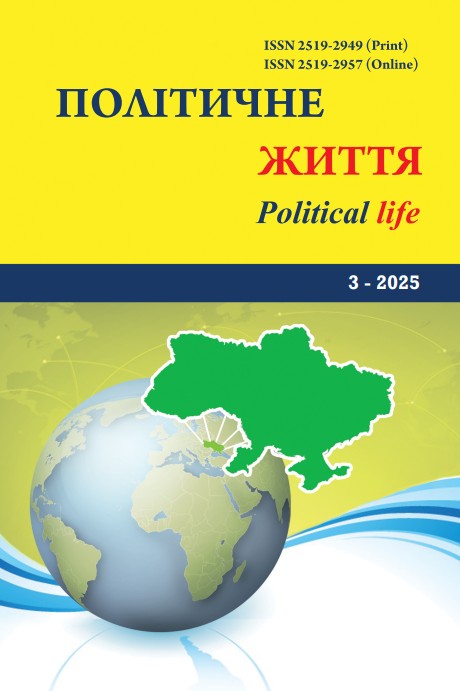Foreign policy of the Barack Obama administration in Latin America and the Caribbean
DOI:
https://doi.org/10.31558/2519-2949.2025.3.18Keywords:
USA, Latin America, foreign policy, Barack Obama administration, Cuba, Plan Colombia, democracy, Merida Initiative, international cooperation, international politicsAbstract
The article examines the problem of foreign policy relations between the United States and Latin American countries during the presidency of B. Obama. The election of Barack Obama raised great expectations in Latin America. It was expected that this would revive inter-American relations, which were neglected by the George W. Bush administration. The paper analyzes the economic crisis and international problems that the Obama administration had to face, which contributed to the fact that the region became a priority. One of the first challenges for the new administrations was the removal of the Honduran president by the military. The US took a pragmatic stance and kept the conflict in Honduras at bay – there was no hope of constitutional restoration. The Obama administration made a significant contribution to the success of the peace process in Colombia. Special attention is paid to stabilizing the situation, which remained one of the security priorities of the Obama administration. The Obama administration also expanded the Merida Initiative beyond traditional, military methods in the fight against criminal organizations. The article examines aspects that contributed to strengthening the rule of law in Mexico. The conclusions emphasize that the achievement of this administration was the normalization of relations with Cuba. The article also suggests directions for further research that may reveal approaches to studying US foreign policy in the region. This became possible because public opinion regarding the normalization of relations changed, and the approach of the Cuban regime towards US policies changed. Obama's foreign policy in Latin America was based on pragmatism, dialogue, and mutual respect. The United States moved away from a unilateral approach and focused on building partnerships that included: expanding economic cooperation, democratic institutions and the rule of law, social and environmental initiatives. Adjusting US policy in the region meant guaranteeing a partnership between the United States and Latin America. Obama, as a presidential candidate, criticized Bush for neglecting Latin American problems.
References
Miguel Tinker Salas. (2010). Latin America, Obama and the Year Ahead, Riverside, Latin American Perspectives Publications. http://latinamericanperspectives.com
Human Rights Watch. (2012). World Report 2013. New York, Seven Stories Press, 222-227.
David Vine. (2012). The Pentagon’s New Generation of Secret Military Bases. Mother Jones, 07/16/2012. http://www.motherjones.com
The White House. (March 2011). Fact Sheet. The US-Brazil Economic Relationship. The Office of the Press. http://www.whitehouse.gov
Greg Grandin. (April 2009). How the Nation Magazine Saved the American Empire, The Nation, 5-9.
Rakesh Kochhar, Richard Fry & Paul Taylor. (July 2011). Gabriel Velasco and Seth Motel, Wealth Gaps Rise to Record Highs between Whites, Blacks, Hispanics, Washington, Pew Research Center, p. 5. http://www.pewsocialtrends.org/files/2011/07/SDT-Wealth-Report_7-26-11_FINAL.pdf
Jeffrey, M. Jones (Dec. 2013). Obama Approval Down Most Among Hispanics in Past Year, Gallup Politics. http://www.gallup.com.
Saragoza, Alex M. (2014). Obama and Latin America: Disappointed Hopes. Cahiers des Amériques latines, 75, 7-14. https://doi.org/10.4000/cal.3088 http://journals.openedition.org/cal/3088. http://cal.revues.org/3088.
Spetalnick, M., Trotta, D. & Mason, J. (March 2016). Obama in Cuba on historic visit, Reuters News, 20, available at: http://www.reuters.com/article/us-usa-cuba-idUSKCN0WM04H

